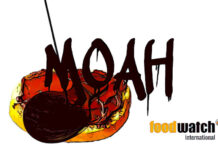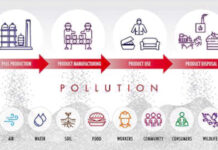The international consumer organization Foodwatch sharply criticizes the European Commission’s draft regulation on levels of food contamination with aromatics hydrocarbon from mineral oils, MOAH, and relaunches the petition to eliminate this risk completely. (1)
1) MOAH mineral oils, the EU draft regulation
The European Commission’s draft proposal for reforming Food Contaminants Regulation(EU) 2023/915, dated June 2024 and published by Foodwatch:
– introduces legally binding limits on the presence in foods of mineral oils (Mineral Oil Aromatic Hydrocarbons, MOAH), suspected genotoxic carcinogens. (2) And yet
– does not ensure food safety, in particular for vulnerable consumer groups such as infants and young children (3,4).
2) Poor protection of public health
Foodwatch notes three serious shortcomings in the draft proposal under examination, with respect to the European objectives of protecting food safety and with respect to serious public health risks:
– excessively high maximum limits. The proposed thresholds for some raw materials such as vegetable oils (6 mg/kg), olive pomace oils and marine oils (10 mg/kg) are too high with respect to carcinogenic and genotoxic substances.
– unacceptably long transition periods. The proposed transition periods for some food products are extraordinarily long. Especially since the industry has been aware of the contamination problems of mineral oils for years, and their risks.
– inadequate protection for vulnerable groups. The draft regulation includes infant formula and baby food, but provides too high limits (2 mg/kg) when the fat content is higher than 50%. Infants and young children, it should be remembered, are particularly vulnerable to the health risks of MOAH, so a strict zero-tolerance standard is needed.
3) Widespread contamination
For ten years, Foodwatch has demonstrated through laboratory analysis the level of contamination of food by mineral oils.
Contamination is involuntary, it comes from environmental pollution and/or from the production process, as well as from contact with packaging containing inks (i.e. pizza boxes).
It concerns numerous foods: rice, pasta, cornflakes, chocolate, Nutella, bouillon cubes, dairy products and oil, as seen (5,6).
4) Zero tolerance, the Foodwatch petition
Beyond the interests of industry, Foodwatch calls for zero tolerance for food contamination with mineral oils.
The request is conveyed with a petition that has already collected about 200 thousand signatures and we invite everyone to sign, through the link https://www.foodwatch.org/en/no-toxic-mineral-oil-in-our-food.
Marta Strinati
Footnotes
(1) Leaked EU proposal on mineral oil contaminants: foodwatch calls for stricter consumer protection. Foodwatch. 11.12.24 https://tinyurl.com/5n856668
(2) Giulia Pietrollini. EFSA public consultation for opinion on MOH mineral oil hydrocarbons in food. FT (Food Times).
(3) Draft Commission Regulation amending Regulation (EU) 2013/915 as regards maximum levels of mineral oil aromatic hydrocarbons in food https://tinyurl.com/28rnehse
(4) Dario Dongo, Alessandra Mei. Food Contaminants Regulation (EU) No 2023/915. FT (Food Times). July 28, 2023
(5) Marta Strinati. MOAH mineral oils in food, Foodwatch test finds residues in 1 in 8 products. FT (Food Times). 23.12.21
(6) Marta Strinati. Extra virgin olive oil and contaminants, the new 60 Millions de Consommateurs test. FT (Food Times).
Professional journalist since January 1995, he has worked for newspapers (Il Messaggero, Paese Sera, La Stampa) and periodicals (NumeroUno, Il Salvagente). She is the author of journalistic surveys on food, she has published the book "Reading labels to know what we eat".








